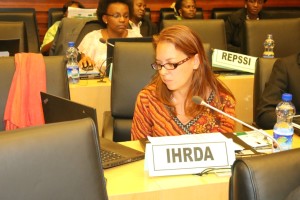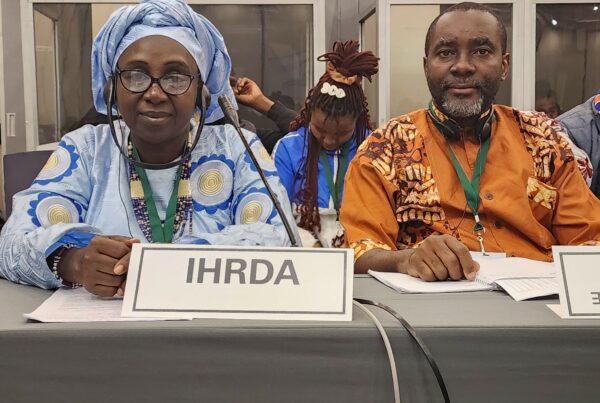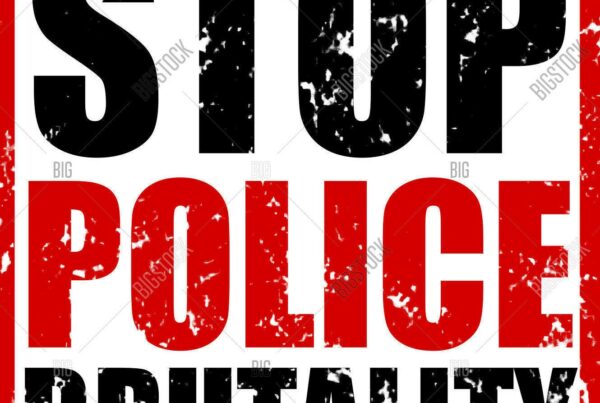Addis Abeba, Ethiopia – 2 May, 2016
Honourable Chairperson and members of the African Committee of Experts on the Rights and Welfare of the Child, I thank you for this opportunity to address you on the occasion of the 27th Ordinary Session.
The Institute for Human Rights and Development in Africa (IHRDA) wishes to draw the attention of the Committee of Experts to certain harmful practices that are eroding the rights of many children in West Africa.
In some countries of the sub-region, especially Ghana, a common belief in witchcraft has led to accusations of children being witches and sent out of their homes and communities, to settle in so-called ‘witch-camps’ where they are not able to attend school, and are deprived of basic facilities necessary for their growth and development.
For example, in the North of Ghana, there are nine (9) ‘witch camps’ that have been established for children and women accused of witchcraft. Reports say that between 300 to 700 children (predominantly girls) aged 4 to 16 currently live in such camps in Ghana’s Northern Region.
These victims forcefully, or voluntarily, resort to the camps to find refuge from beating, torture and even lynching; ostracized from their families and their communities. They live in appalling conditions where food and running water are scarce, as society has abandoned them in their misery, and whereas minors and elderly persons are not able to adequately protect themselves.
Victims are subjected to rituals, whereby they are forced to consume harmful concoctions to be declared ‘cleansed’. Despite these so-called ‘cleansing’ rituals, some communities continue to reject the children. Meanwhile, several of these women are known to give birth in the camps, subjecting their children to the same atrocious conditions.
While this phenomenon thrives, little or no action to protect the welfare of the victims appears to be taking place on the part of the government.
This practice raises violations of several articles of the African Charter on the Rights and Welfare of the Child, including articles 1, 4, 5, 11, 12, 14, 16, 19 and 21.
[Apart from witch-camps, there is also the practice of exorcism that is popular in countries such as Nigeria, Ghana and Sierra-Leone where spiritualists claim to exorcise witchcraft out of children often by very violent means such as beatings, starving, and drinking harmful concoctions, among others. Many children reportedly lose their lives or become disabled in the process of this exorcism.]
The Committee of Experts has an important role to play in countering this phenomenon, especially through its mandate to monitor State compliance with the Children’s Charter, to call on States to stop harmful practices against children, and to sensitize the public on the dangers of these practices. In this regard, we call on the Committee of Experts to take note of these practices and to employ the full range of measures within its protection and promotional mandate to ensure that the rights of these children are protected.
Finally, we urge the Committee to engage the government of Ghana to adopt all necessary measures to stop these harmful practices against children accused of witchcraft, to disband the camps and ensure safe alternatives for these children, to facilitate family reunification where appropriate, and to conduct broad sensitization of the public on the dangers of these harmful practices.
Thank you.





